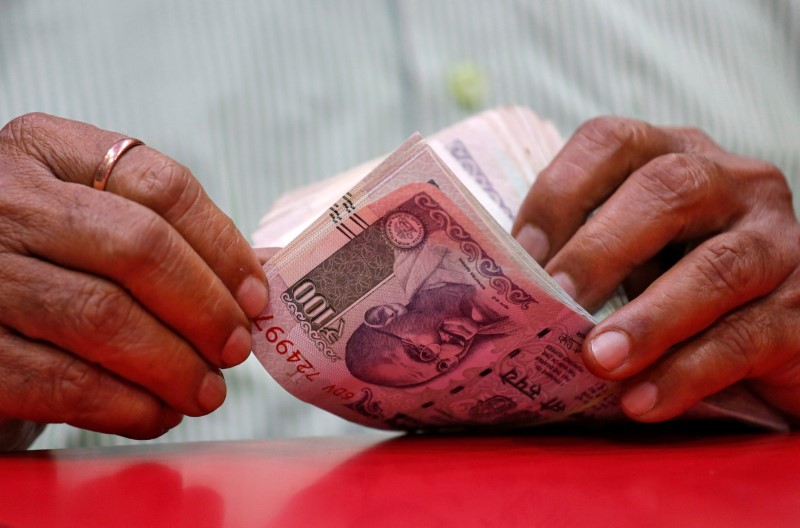By Nupur Anand and Aftab Ahmed
MUMBAI/NEW DELHI (Reuters) - The Indian government has asked all state-owned lenders to extend emergency credit lines to corporate borrowers, three government and banking sources said, as it rushes to tackle the fallout from the coronavirus outbreak that has grounded business across the globe.
Banks have been asked to make available an additional 10% in funds over and above sanctioned working capital loans, but not exceeding 2 billion rupees ($26.33 million) per loan account as part of the emergency measures, a senior government official, who did not want to be named, said.
India's largest lender, State Bank of India (NS:SBI), has already rolled out this emergency credit line and the other state-owned lenders are also expected to follow suit shortly, industry officials said.
None of the sources wanted to be named as the plan is not yet public.
The Finance Ministry and SBI did not immediately respond to a request for comment.
The coronavirus pandemic has sparked concerns about the health of the small and medium-sized enterprises that have already been hammered by a slowing economy.
India's economy expanded at its slowest pace in more than six years in the last three months of 2019 and analysts have predicted a further deceleration caused by the global COVID-19 outbreak.
Small businesses have been approaching banks to provide additional liquidity support, also warning that loan repayments may be delayed.
Bankers say that they have received such requests from small and medium-sized businesses in the auto, transportation, trading, hospitality and the aviation sector.
Lenders have also asked the banking regulator to ease bad loan classification rules and also to extend loan repayments by six months across categories spanning industry, agriculture and retail customers.
Similar requests have also been made to the government and the Reserve Bank of India by the shadow banks that have already begun to see an impact on repayment caused by the Covid-19 pandemic, said sources.
The RBI has also allowed banks to classify loans to NBFCs for key areas such as agriculture, housing and small and medium businesses - up to certain limits - as priority sector lending for the next financial year as well, in a bid to keep credit flowing to the parts of the economy where most Indians work.
The measure, introduced in August, was originally planned to last until March this year.
India has more than 400 confirmed cases of coronavirus. Maharashtra, the financial capital of India has recorded the highest number of cases in the country and authorities have banned gatherings of more than five people in the state.

($1 = 75.9700 Indian rupees)